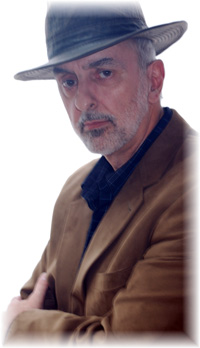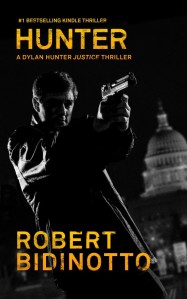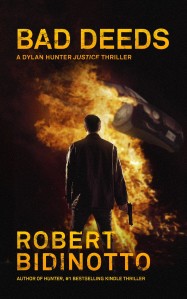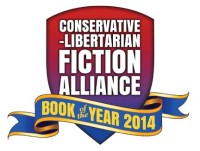JD Lasica has been a journalist, startup founder, social media pioneer, and public speaker. Now he’s entered a different media frontier, becoming the author of fast-paced, high-tech action thrillers.
A Rutgers University graduate with a B.A. in communication, JD launched his media career as a reporter for his hometown newspaper, the Passaic, N.J. Herald News. He moved on to editing jobs in California with the Sacramento Union and Sacramento Bee, then left newspapers for writing and editing positions in the tech industry. He became the first “new media” columnist for the American Journalism Review, then the chief columnist for the Online Journalism Review, and a columnist for the technology blog Engadget.
In 2005, he published Darknet, a book about copyright wars and the future of media. That year he also started up a grassroots media community and one of the first video hosting and sharing sites on the Internet. He went on to found and lead a consulting firm providing social media services to companies, and also collaborative blogs serving nonprofits and social-change organizations. In 2012, Social Technology Review named him on its list of the “Top 100 Influencers in Social Media.”
JD has spoken at Harvard, Cambridge, Stanford, MIT, the Cannes Film Festival, and at events on four continents. He spoke at the United Nations in 2012 about how to use social media to combat global poverty.
Writing thrillers is the latest endeavor for this busy media expert, as he explains in our interview. He published his first high-tech conspiracy thriller, Biohack, in May 2018, inaugurating his “Shadow Operatives” series. It soared to #1 in five Amazon bestseller categories. In March 2019, he released the first series sequel, Catch and Kill.
 NOTE: CATCH AND KILL WILL BE AVAILABLE FOR FREE ON MONDAY, MAY 20 THROUGH TUESDAY, MAY 21, 2019. Download your copy at the preceding link right away!
NOTE: CATCH AND KILL WILL BE AVAILABLE FOR FREE ON MONDAY, MAY 20 THROUGH TUESDAY, MAY 21, 2019. Download your copy at the preceding link right away!
Your friendly neighborhood Vigilante Author was fascinated by the parallels in our backgrounds: early careers in journalism, then involvement with online media and nonprofits, with a turn to writing politically charged thriller fiction much later in life. I couldn’t wait to learn more about JD, and he happily obliged my curiosity by answering my eager questions.
Watch out for this writer, folks: He’s already making a name for himself in the thriller genre, and you’ll want to get in on the ground floor.
Here’s our conversation:
~*~
The Vigilante Author: JD, congratulations on the successful releases of Biohack and Catch and Kill. They’re amassing exceptional sales, along with terrific reviews and stellar Amazon customer ratings. Why don’t we begin with a bit of background about your “Shadow Operatives” thrillers. What’s the inspiration for the series?
JD Lasica: I live in the tech capital of the world, Silicon Valley. Have you noticed the shift in the public’s attitude toward technological change in the past few years? The dark side of tech fascinates me, and that’s what propels my thrillers.
Biohack was about the dark side of biotech. My new book, Catch and Kill, has storylines involving virtual reality, artificial intelligence, and bioweapons. What people seem to like is that even though I tackle cutting-edge subjects, the setting and characters are firmly grounded in today — or “the next five minutes,” as one reader put it.
The Vigilante Author: Grounded in emerging, disruptive technological reality, then.
JD Lasica: I was a journalist for twenty years, so I try to follow this credo: Do your research, keep it real, ground your story with facts. I love the works of Michael Crichton and James Rollins and even include “Fact vs. Fiction” sections at the back of my novels. The truth of where tech may be taking us is scarier than any fiction I could make up from whole cloth.
The Vigilante Author: Your fact-rooted fiction seems to cross or combine a lot of thriller subgenres.
JD Lasica: Catch and Kill has elements of a conspiracy thriller, espionage thriller, crime fiction, military thriller and medical thriller. But it’s chiefly a technothriller.
 It’s interesting. “Technothriller” used to mean Tom Clancy novels with big war machines: jet fighters, nuclear subs. But I think today’s technothriller relies on a different kind of threat. One that arises not from nation states but from adversaries plotting in the shadows. That’s why I titled this the “Shadow Operatives” series.
It’s interesting. “Technothriller” used to mean Tom Clancy novels with big war machines: jet fighters, nuclear subs. But I think today’s technothriller relies on a different kind of threat. One that arises not from nation states but from adversaries plotting in the shadows. That’s why I titled this the “Shadow Operatives” series.
The Vigilante Author: Your thrillers feature a young heroine, which is a bit unusual for a male author. What prompted you to do make that choice, and what else is unusual about her that might distinguish her from other thriller protagonists?
JD Lasica: I didn’t want to write a thriller with the stereotypical protagonist who’s a jaded FBI agent, CIA agent, or private investigator. Kaden Baker is a young woman who was abused as a child and now finds herself thrust into an international maelstrom of intrigue involving some close family members she didn’t know she had.
I created a premise that centers on family relationships because I think that can get readers to invest emotionally in the characters. We put ourselves in these characters’ shoes and decide whether we’d make the same life choices and moral decisions that confront Kaden and her family members.
The Vigilante Author: You mentioned your journalism background. Where did it all begin for you?
JD Lasica: I’m from Bergen County, New Jersey, exit 154 on the Garden State Parkway. I’ve been a writer my entire life and started as a journalist at a newspaper right out of Rutgers. I spent eleven years as an editor at the Sacramento Bee before veering into the tech world, where I founded a travel tech startup called Cruiseable.
A few years ago I made the turn from tech and nonfiction to fiction.
The Vigilante Author: Well, in some ways, JD, our backgrounds are strikingly similar. Before writing and publishing my first thriller, HUNTER, I’d also spent most of my career writing and editing nonfiction, for newspapers, magazines, and online publications. But eventually, nonfiction felt too confining for the things I wanted to say. I gather you felt the same way.
JD Lasica: It struck me that I could say more and have a bigger impact by writing big stories with big themes. When you think about powerful stories that made a lasting impression, they’re often from novels or screenplays, not magazine articles or newspaper exposés.
The Vigilante Author: I wholeheartedly agree with that. People are far more profoundly shaped by stories — by “narratives,” to use the popular terminology.
Which writers have influenced you most, and what have you learned from them?
JD Lasica: The other day I read an interview with an author who said he doesn’t read fiction because he doesn’t want other writers to influence his work. That’s really terrible advice. Every writer should read, both widely and in your genre.
I was influenced in my formative years by journalist-authors like Gay Talese, Pete Hamill, Jimmy Breslin, Norman Mailer, and later by Michael Lewis and Tom Wolfe. I had my sci-fi phase, but lately I’ve been immersed in great thrillers or crime fiction by Michael Crichton, James Rollins, Blake Crouch, Nora Roberts, Michael Connelly, James Lee Burke, Robert Ludlum, Dean Koontz, Margaret Atwood, Elmore Leonard, Daniel Suarez, and others. Vastly different tones and styles.
I think most people read for story and pleasure. Authors read other authors to improve their craft, to borrow ideas about pacing, inciting incidents, plot turns, character descriptions, dialogue tags, and other tricks of the trade.
The main lesson I’ve learned over the years? Remove anything that sounds like writing, and just leave the story.
The Vigilante Author: Amen to that. I think it’s pure vanity, and lousy storytelling, for an author to intrude his presence into the tale.
What is your current goal as a writer?
JD Lasica: I belong to a writers group with other indie thriller authors such as Nick Thacker and Kevin Tumlinson. My friends think that I write fast because I wrote my last book in seven months, but some of these guys pump out five or six books a year. Now, that’s impressive. So I aspire to be more prolific and strike the right balance between quality and quantity.
The Vigilante Author: Do you make a distinction between traditional and indie publishing?
JD Lasica: Most readers don’t know the difference, and that’s fine — they care about the story, not the publisher. I wrote my first [nonfiction] book for Wiley & Sons and was surprised at every point in the process. I finished my manuscript and had to wait a year for the publication date. I didn’t like the name they chose or the book cover design. I got zero support with marketing or with setting up my book tour.
As an indie author, I’m responsible not just for the manuscript but for the entire publishing process: the book cover, the book launch, marketing, social media, publicity, podcast appearances, advertising, soliciting book reviews from my launch team — the entire business side of things.
My experience with the indie publishing movement led me to launch Best of Indie, a site where we spotlight high-quality, independently published ebooks that readers can scoop up for free or a very low price, usually 99 cents.
The Vigilante Author: I hope those reading this interview will check it out. What publishing route would you recommend to aspiring writers today?
JD Lasica: Tomorrow’s writers will forge their own path. I do think, though, that the vast majority of them will decide on the indie publishing route. Whatever route you take, though, you should take your time and learn the craft.
I began, like a lot of new fiction writers, thinking that I didn’t need to hew to the tropes of my chosen genre. Over time it finally sank in that readers have certain expectations when they pick up a horror novel or romance or spy thriller. So you need to deliver on those expectations — but to do so in an original, surprising or unexpected way.
The Vigilante Author: You are preaching to the choir. I’ve been doing freelance editing during the past year, and one of the things I see a lot is that writers haven’t taken the time to learn about the expectations of readers in their genre. That hurts their reputation and sales with those readers. And I agree: You can respect the tropes of a genre while still being innovative.
Let me venture a dangerous question: Do your stories have a clear political of philosophical point of view?
JD Lasica: We live in a polarizing era as people scurry for the protection of their media bubbles. But it’s generally a mistake for novelists to imbue their heroes with a political slant. Michael Crichton wrote State of Fear as a diatribe against those who believe in climate change. Today, ten months after wildfires tore through Northern California near where I live, the book stands as his most embarrassing work. So be wary of inserting didactic politics into your prose.
That said, I think every novel takes a philosophical point of view about life, culture, or morality. Authors can’t help but insert their belief systems into their works, and that’s a good thing. Every book deserves a theme. Who wants to read a book where the characters don’t believe in anything? Just make sure it speaks to higher truths, not petty squabbles.
The Vigilante Author: You’re right, it’s unavoidable. As a theme-driven novelist, I think you can present your viewpoints in fiction in ways that don’t sound didactic — but that’s a discussion for another day.
I like to ask novelists about their writing methods. Are you a meticulous outliner, like me, or do you just start typing and write by the seat of the pants, letting the story emerge on its own?
JD Lasica: I do a combination, as I suspect most authors do. Like Lee Child and Stephen King, I don’t want to know how my book ends before I start writing it. I want my characters to take me to a destination that’s surprising, yet inevitable. That only happens when you surprise yourself during the writer’s journey of discovery.
But I also think you need to hit certain yardsticks at certain points in your work. You need to include certain tropes or conventions. You need to turn up the tension in each chapter and each act. That requires some planning and basic outlining. The tool I use to write, Scrivener, helps with organizing your manuscript. I recommend it to anyone who writes long-form fiction or nonfiction.
The Vigilante Author: I use novel-writing software, too. My choice is a great program called “Write It Now,” whose virtues I’ve proclaimed since I began drafting my first novel about a decade ago.
Okay, for the aspiring authors out there who might be looking for tips, tell me, JD: What qualities do you think are most important for any would-be writer? And what advice would you offer them?
JD Lasica: Don’t spend three years fretting about publishing the perfect novel. It won’t be perfect, it won’t make you famous, so just get it out and move on to the next book. The thing that separates authors from would-be authors is not skill but perseverance — the ability to put your butt in the chair and write day after day after day without waiting for the muse to pay you a visit.
The Vigilante Author: Yes.”The Muse” is a fantasy. If you want to write novels, you have to just suck it up and work steadily and persistently, whether or not you feel “inspired.”
Any fun tidbits about yourself?
JD Lasica: Sure. I spoke at the United Nations in 2012, addressing 150 NGOs about how to use social media to combat global poverty.
I got to shoot Michael Phelps at major swim meets as a sports photographer for seven years in a row during the height of his career.
And I was one of the first YouTube users to send a video question to a presidential candidate in 2007. Joe Biden replied with a video response to my question about what sacrifices he’d ask of the American people during a time of war.
The Vigilante Author: Now, that’s cool stuff. But obviously, you aren’t one to rest on your resumé. What can readers expect from you in the future?
JD Lasica: I’m now writing book three of the Shadow Operatives series. I’ve been told my thrillers are highly visual and cinematic, so I just submitted Catch and Kill to TaleFlick. It’s a new platform that connects great stories with film production companies and the Hollywood studios. So who knows? Maybe you’ll see one of my thrillers on the silver screen one day.
The Vigilante Author: I wish you the best on that. Thanks so much for spending time with me, JD. I’ll be sure to post links to your social media platforms and your books at the end of the interview.
~*~
NOTE: ON MAY 20-21, 2019 only, download CATCH AND KILL for free!
Here is the link to BIOHACK on Amazon.
As you might expect from a media guru, JD Lasica can be contacted and followed all over the Internet and social media. Here are some links:
To find out more about the author and his books, check out the JD Lasica author website.
If you’re on Facebook, visit JD’s author page on Facebook.
Connect with JD on Twitter (yes, he’ll follow you back).
You can also keep up with JD’s latest books at his author page on Amazon. Or visit his author page on BookBub.
And for free and inexpensive self-published books, visit his site, Best of Indie.






 Photo (c) by Debbie Scott
Photo (c) by Debbie Scott




